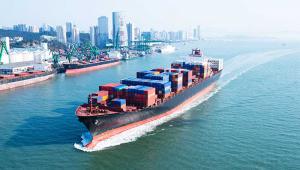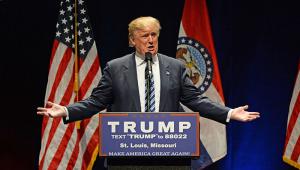Ministers from the world’s 20 strongest economies removed a small but important line that has been present in their communiqué for the past 10 years following their meeting in Baden Baden, Germany over the weekend.
The fact that language on resisting protectionism in “all its forms” was absent was the clearest signal that the influence of US president Donald Trump had upset the group’s equilibrium.
Ministers were instead only able to agree on a token reference to strengthening the “contribution of trade to our economies”.
They were however able to maintain a consensus on foreign exchange – an issue also high on Trump’s agenda. He has accused China, Japan and Germany of gaming the foreign exchange markets to win favourable trade terms.
The communiqué reaffirmed the group’s previous commitments to “refrain from competitive devaluations” and target exchange rates for “competitive purposes”.
Germany is the country that has most recently found itself in Trump’s crosshairs during chancellor Angela Merkel’s first official visit to the US last week.
Divisions between her and the president were obvious throughout the awkward meeting, which was accompanied by typically provocative tweets from Trump.
Despite what you have heard from the FAKE NEWS, I had a GREAT meeting with German Chancellor Angela Merkel. Nevertheless, Germany owes.....
— Donald J. Trump (@realDonaldTrump) 18 March 2017
...vast sums of money to NATO & the United States must be paid more for the powerful, and very expensive, defense it provides to Germany!
— Donald J. Trump (@realDonaldTrump) 18 March 2017
Trade was also an issue; Germany has a $65bn trade surplus with the US. Following the meeting, on Friday, Trump said he was not an isolationist but that trade arrangements should be fairer.
Back in Baden Baden, while Germany reportedly pushed for language emphasising the importance of free trade and calling for “rules-based” trade governance, the final communiqué makes clear Trump’s more protectionist stance won out.
Some have interpreted this as a significant turning point in the global trade conversation and sure indication that Trump plans to substantially shake up the status quo.
Markets however seemed largely unconcerned over the weekend, and were boosted somewhat by the G20’s unchanged stance on foreign exchange. Any disagreement on currency policy would likely have had a more implications.
The shift on trade is likely to inspire a more cautious approach throughout this week. However Andrew Kenningham, analyst at Capital Economics, added that investor fears are likely to be moderated by remarks from US treasury secretary Stephen Mnuchin last week, which suggested the US is “not planning an imminent lurch towards protectionism”.
“A Trump-inspired slump in world trade is not likely, not for now at least,” he predicted. “Nonetheless, there is a big risk that Trump himself will adopt a more confrontational approach in the coming years.”
The Baden Baden meeting also saw the group drop commitments to climate change financing, reportedly under pressure from Saudi Arabia and the US. In the past, Trump has dubbed climate change a “hoax” and described spending money tackling it as a “waste”.














